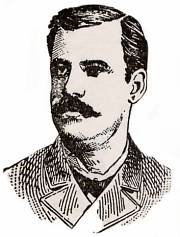3.5.1 Testimonial texts written during the Ten Years’ War (1868 – 1878)

The gruesome nature of combat and life on campaign was captured in the simple and truthful accounts of those who sometimes didn’t even hold high military ranks, and even important military leaders without literary talent. The same is true of the extensive diplomatic activity deployed to garner support from the United States and Latin American and European nations, particularly the northern country, which prompted significant memoir writings.
Enrique Piñeyro’s text, “Morales Lemus and the Cuban Revolution,” is of this nature. Written in a style of sober elegance, it also possesses notable historical value not only for its reference to the events taking place in Cuba, the political situation of the Spanish crown, and the diplomatic maneuvers carried out by U.S. President Ulysses Grant and Secretary of State Hamilton Fish regarding the island’s future, but also for its very desire to interrelate the events to complete a true overview of the period.
For his part, Antonio Zambrana authored the pamphlet “The Republic of Cuba,” published in 1873, shortly after his arrival in New York. In the text, Zambrana recounts his participation in the insurrectionary struggle while also validating the justness of the Cuban cause. This pamphlet constituted an effective propaganda tool for achieving diplomatic recognition of the Cuban people’s struggle from the nations of the continent, an important starting point for garnering any logistical support.
Of a directly condemnatory nature, was the text by Fermín Valdez Domínguez, entitled “November 27, 1871” – whose first version appeared in Spain in 1873, under the title “The volunteers of Havana at the event of the medical students” – containing elements that inexorably demonstrate the magnitude of the injustice committed against the young students and the vicious cruelty of the volunteers and, by extension, of the colonial administration of the Island.
Generally speaking, these authors, rather than demonstrating literary aspirations, sought to record the events in which they directly participated, whether military, diplomatic, or somehow associated with the Spanish colonial administration. The most in-depth authors, such as that of Fermín Valdés Domínguez, went beyond a mere recounting of events to address the political context within which they took place.








